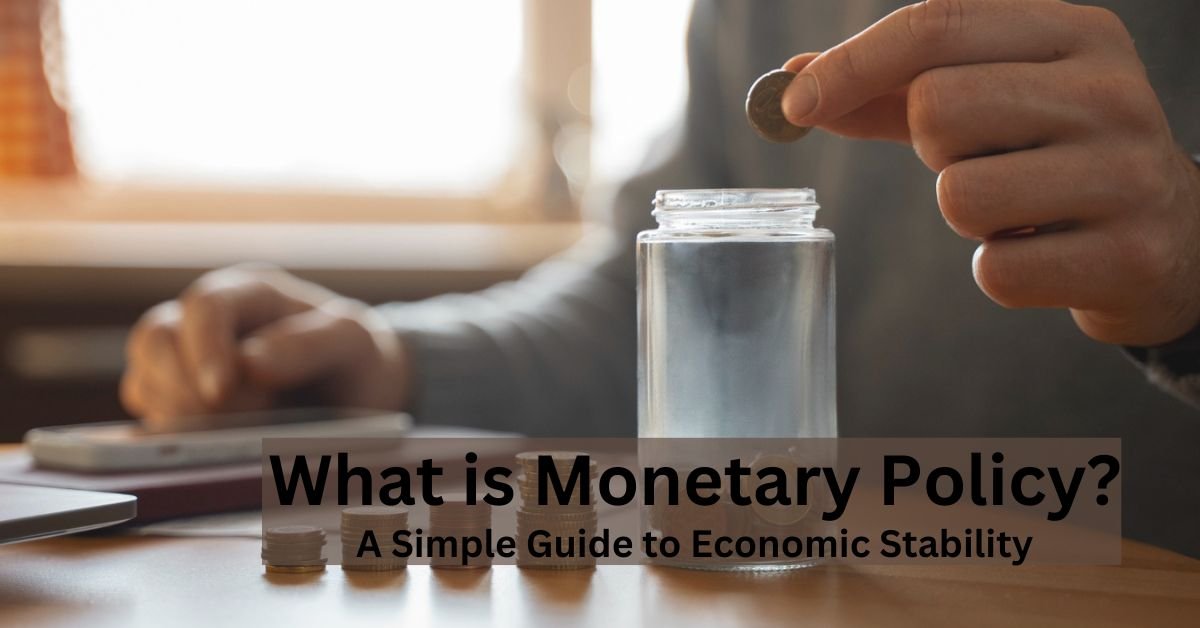What is Monetary Policy?
Monetary policy is a critical tool used by governments and central banks to influence a country’s economy. It involves managing the supply of money and interest rates to achieve specific economic objectives such as controlling inflation, stabilizing currency, and promoting employment and economic growth.
Join Telegram – t.me/trendxinc
Why Does Monetary Policy Matter?
The policy plays a key role in shaping the economic landscape of a nation. Here’s why it matters:
- Controls Inflation: By regulating the money supply, central banks can keep inflation in check, ensuring prices remain stable.
- Encourages Economic Growth: Adjusting interest rates can stimulate borrowing and investment, boosting economic activity.
- Promotes Employment: Lower interest rates can encourage businesses to expand, creating more jobs.
- Maintains Currency Stability: A stable helps maintain the value of a country’s currency, crucial for international trade.
Types of Monetary Policy
This policy is broadly categorized into two types:
- Expansionary
- Focuses on increasing the money supply to stimulate economic growth.
- Often used during recessions to boost spending and reduce unemployment.
- Tools include lowering interest rates and purchasing government securities.
- Contractionary
- Aims to reduce the money supply to control inflation.
- Typically implemented during periods of high economic activity.
- Involves increasing interest rates and selling government securities.
Tools of Monetary Policy
Central banks use various tools to implement the policy. These include:
- Interest Rates: Adjusting the cost of borrowing to influence economic activity.
- Open Market Operations (OMO): Buying or selling government securities to control money supply.
- Reserve Requirements: Setting the minimum amount of reserves banks must hold, affecting their ability to lend.
- Quantitative Easing (QE): Injecting money directly into the economy by purchasing financial assets.
Who Controls Monetary Policy?
In most countries, the central bank is responsible for monetary policy. Examples include:
- The Federal Reserve (U.S.)
- The European Central Bank (EU)
- The Reserve Bank of India (India)
- The Bank of England (UK)
These institutions operate independently of political influence to ensure unbiased economic decision-making.
How Does Monetary Policy Impact You?
Policy affects everyone, from individuals to businesses:
- For Consumers: Interest rate changes impact loans, mortgages, and savings accounts.
- For Businesses: Borrowing costs influence expansion plans and operational costs.
- For Investors: Stock and bond markets often react to changes.
Challenges of Monetary Policy
While this policy is essential, it comes with challenges:
- Time Lags: The effects of decisions can take months or years to materialize.
- Global Influences: In a globalized economy, external factors like trade and currency fluctuations can impact its effectiveness.
- Balancing Act: Striking the right balance between growth and inflation control is a complex task.
The Future of Monetary Policy
As economies evolve, so do the approaches to the policy. Here are some emerging trends:
- Digital Currencies: Central banks are exploring the use of digital currencies to improve monetary control.
- Data-Driven Decisions: Advances in technology enable more precise economic forecasting.
- Focus on Climate: Some central banks are incorporating environmental factors into policy decisions.
Conclusion
Monetary policy is a cornerstone of modern economic management. By understanding its mechanisms and effects, individuals and businesses can better navigate economic changes. Whether it’s controlling inflation, fostering growth, or ensuring currency stability, remains vital to the health of any economy.
Also read – https://trendxinc.com/what-is-share-buyback-exploring-its-methods-and-benefits/

